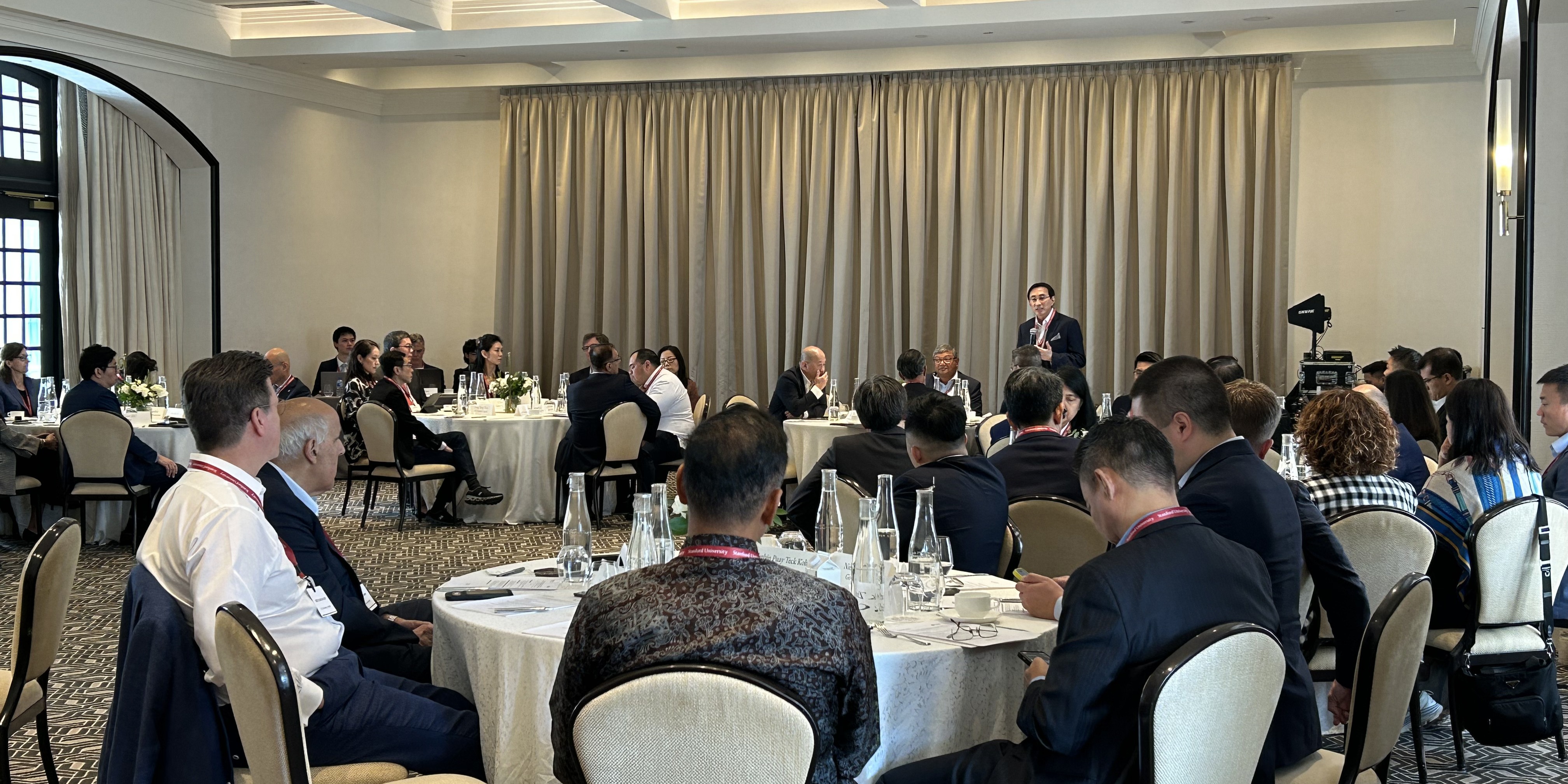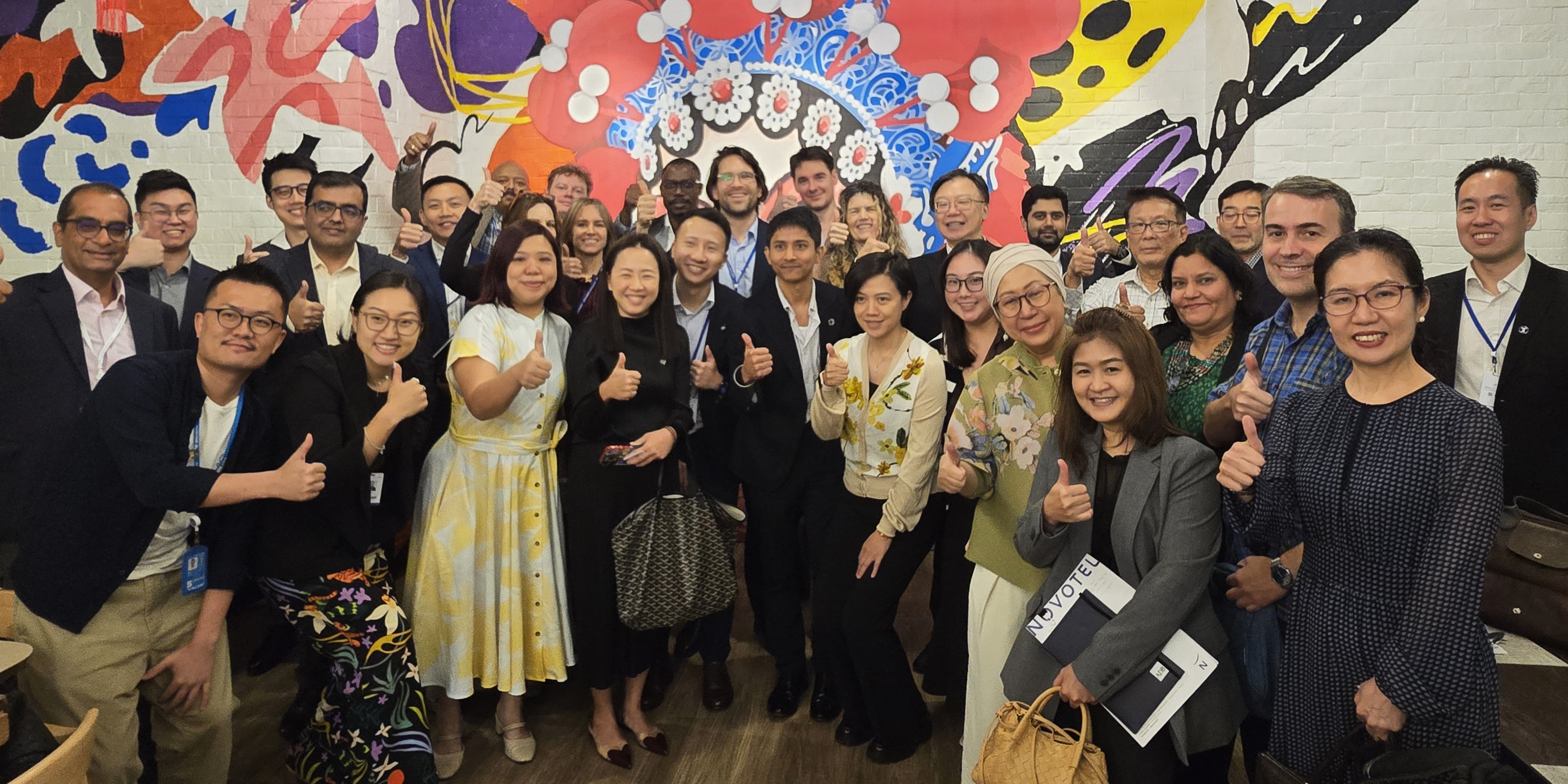Rice sustains more than half of the world’s population. Yet, every bowl of rice we consume carries a hidden cost. Today, rice cultivation contributes to approximately 10–12% of global methane emissions.
Decarbonising Rice, an award-winning project developed by Temasek Life Sciences Laboratory (TLL) — part of the Temasek Trust ecosystem — aims to address the urgent issues of climate change effects and surging global food demand.
This groundbreaking initiative was featured at the Philanthropy Asia Summit 2025, organised by the Philanthropy Asia Alliance (PAA), where the TLL team also helmed an Innovation Showcase booth and highlighted other key research collaborations.
Find out how TLL is advancing science-based solutions for sustainability, food security, and well-being.
Decarbonising Rice Project: Revolutionising Sustainable Agriculture
The Decarbonising Rice project — led by TLL senior investigators, Dr. Srinivasan Ramachandran, Dr. Naweed Naqvi, and Dr. Zhong Chao Yin — offers an innovative and scalable science-driven solution at the critical intersection of climate action and food security.
Its three-pronged approach combining climate-resilient rice varieties, water and soil microbiome management, and precise methane monitoring, has already shown promising results.
Trials piloted in Singapore and India have achieved methane emission reductions of 30% to 50%, decreased water use by nearly 50%, and increased yields by 5% to 10%. The project is now being scaled in Laos, India, and Indonesia, with the aim of empowering smallholder farmers with innovative technologies to enhance productivity while lowering their environmental footprint.
Partnerships have made such progress possible. TLL has engaged diverse stakeholders across Asia — from farming communities and research institutions, to private-sector partners, governments, and philanthropic donors.
Decarbonising Rice won the prestigious GAEA Award in the Climate, Nature, and Resilience Science category at the 2025 Annual Meeting of the World Economic Forum. The GAEA Awards recognise innovative collaborations leading the way on systems change. As a partner event at PAS, the awards ceremony celebrated the winning initiatives and featured insightful, inspiring panel discussions.
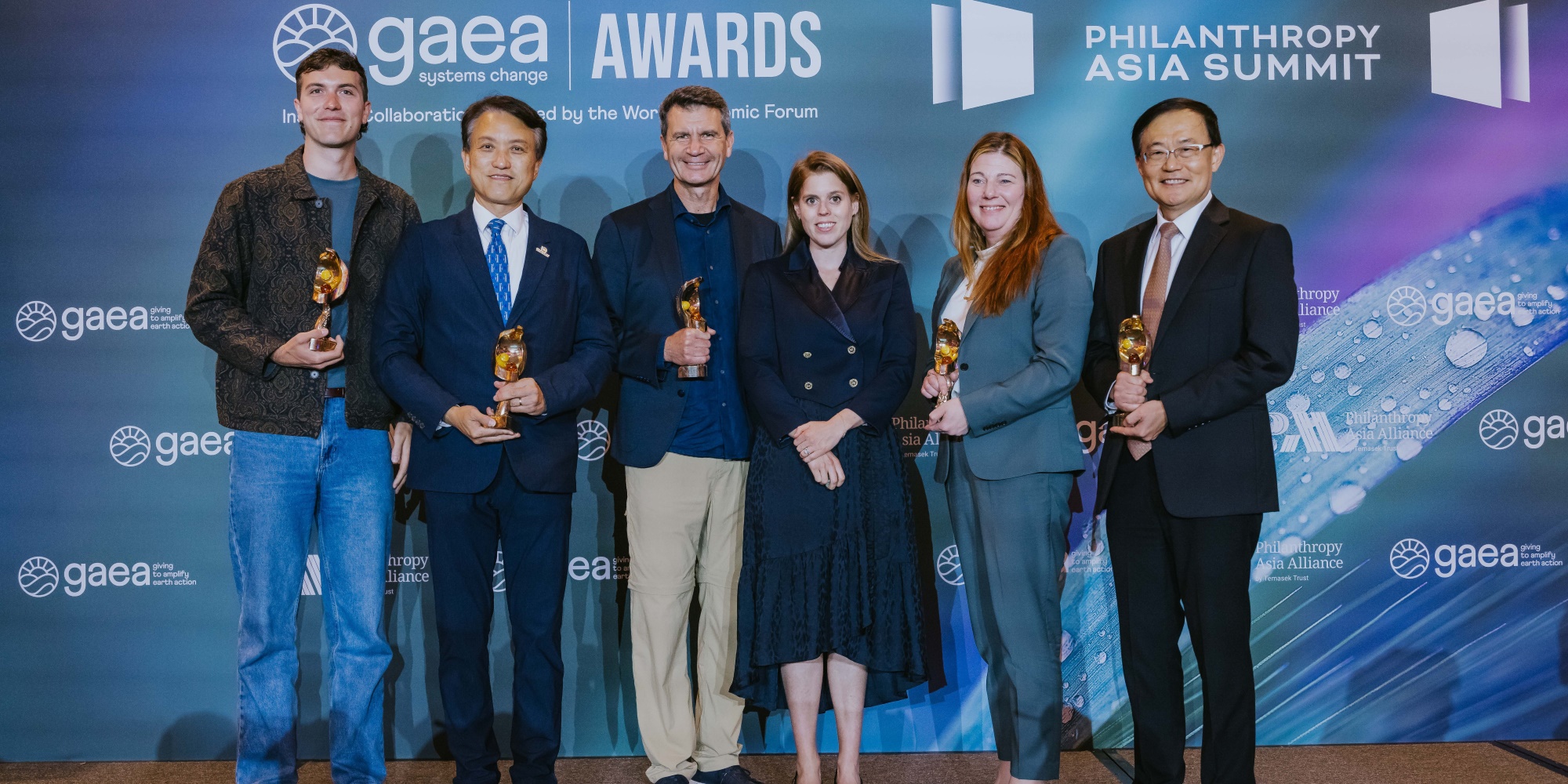
The GAEA Awards winners with H.R.H Princess Beatrice (third from right), St James Palace, United Kingdom. The awardees are Youth Climate Justice Fund, Global Energy Alliance for People and Planet (GEAPP), Built by Nature, HYBRIT, and TLL. (Photo credit: GAEA)
During his acceptance speech at the GAEA Awards Ceremony, Mr. Peter Chia, CEO, TLL, said that integrating science with systems change, engaging farmers from the ground up, and co-developing solutions that fit into farmers' workflow, are top of mind for the team.
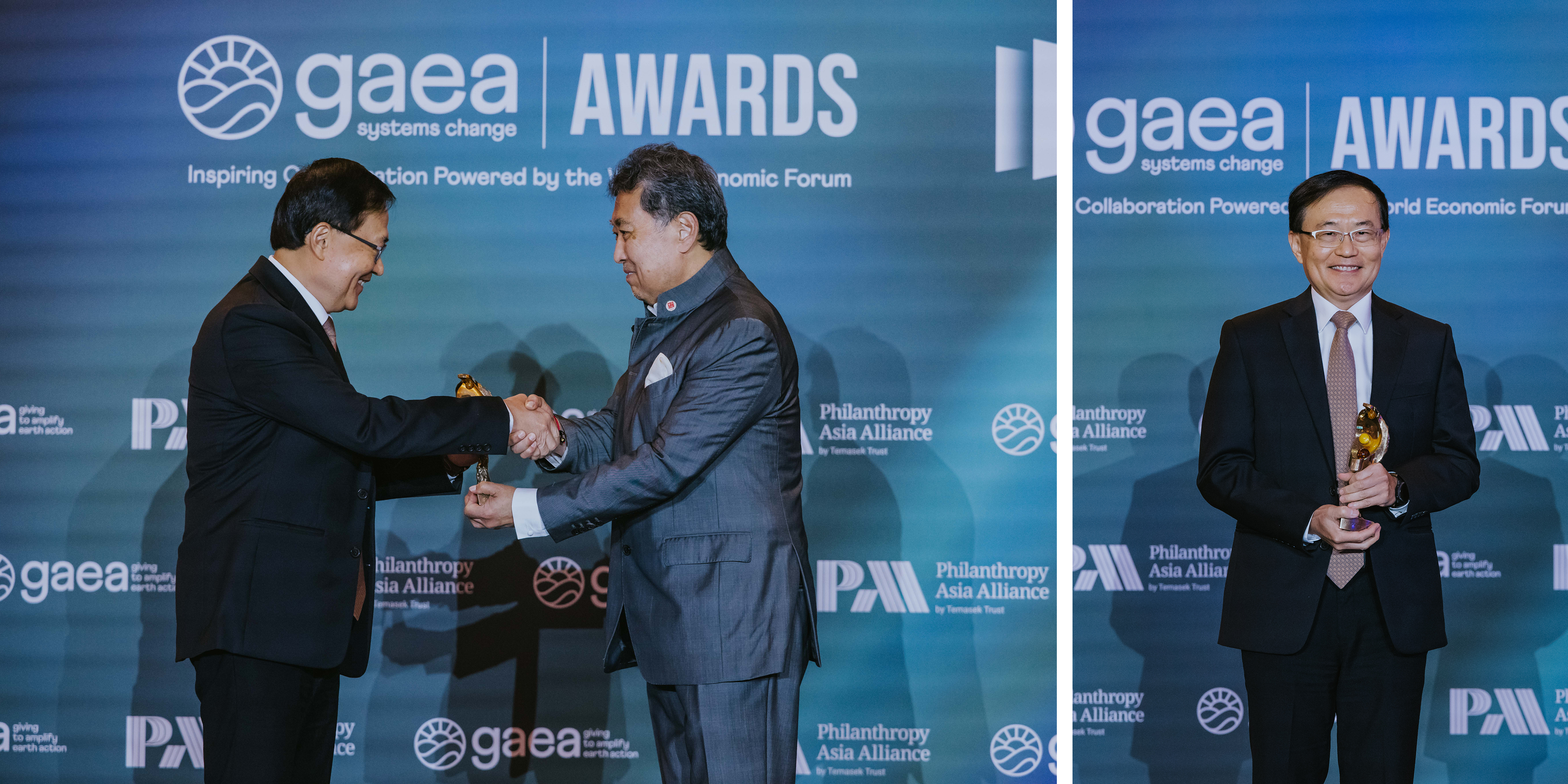
Mr. Peter Chia, CEO, TLL, receiving the GAEA Award onstage from Mr. Chavalit Frederick Tsao, Chairman, TPC (Tsao Pao Chee). (Photo credit: GAEA)
"We see technology and innovation as very powerful resource enhancers that multiply every unit of energy, water, land, and labor to return higher yields, without compromising the environment or our collective future."
— Mr. Peter Chia, Temasek Life Sciences Laboratory
In the next few years, TLL aims to bring 1 million tonnes of low-methane rice to the market. Partnerships and capital will be crucial in growing farmer adoption, strengthening supply chains, and most importantly, developing carbon credit frameworks to reward sustainable practices, added Mr. Chia.
TLL is also looking to collaborate with other industries and institutions, not just in science, to bring innovation and systemic change on the ground. As part of the GAEA Awards community, the winners can access a global network to raise their profiles and mobilise new partnerships, as well as tailored support over the next year to scale their solutions.
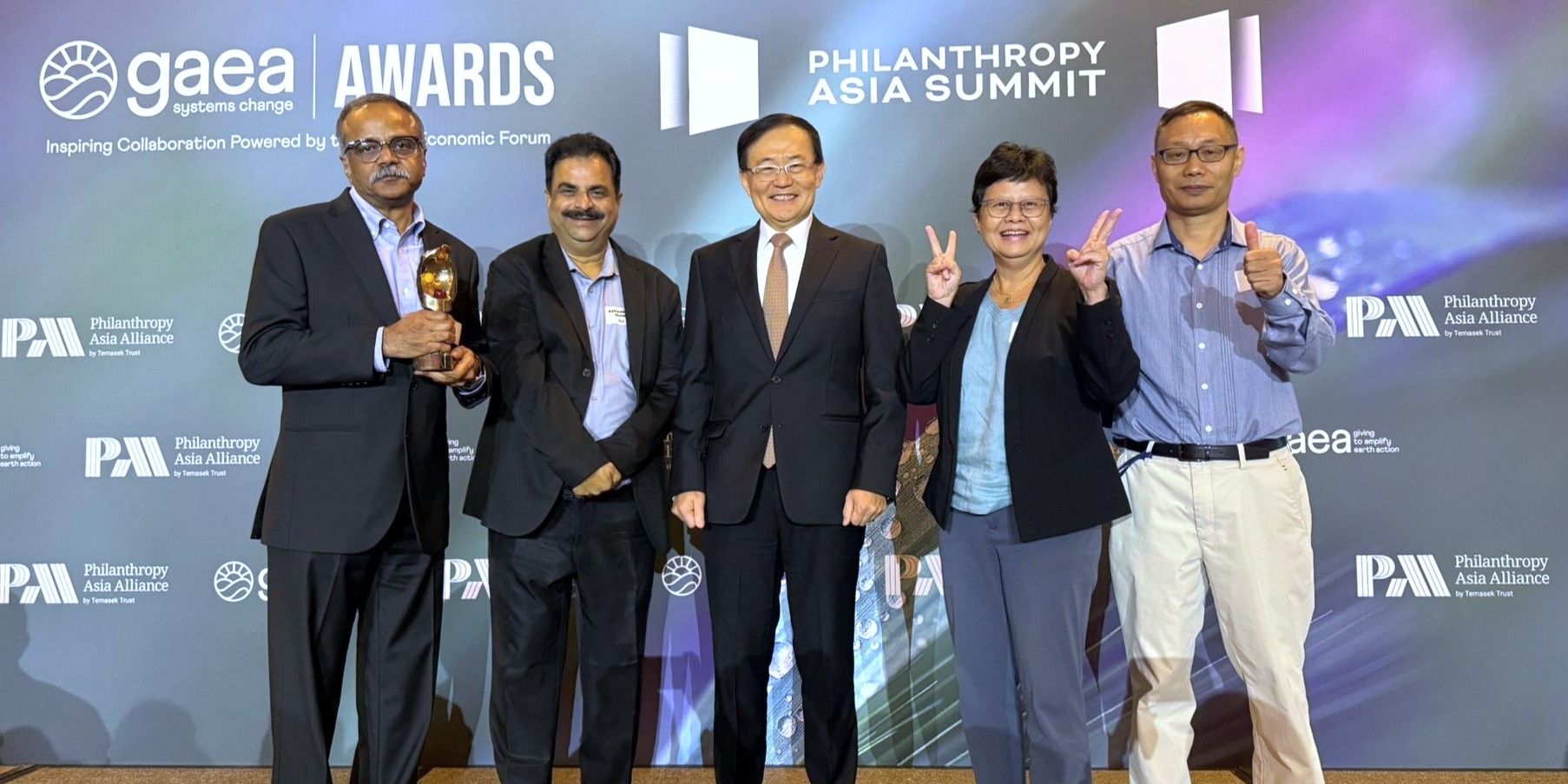
TLL’s Decarbonising Rice team — Dr. Naweed Naqvi, Dr. Srinivasan Ramachandran, Dr. Phuay-Yee Goh, and Dr. Zhong Chao Yin — joined Mr. Chia onstage.
Watch this video to learn more about the project:
The project was also lauded by esteemed thought leaders and speakers on the first day of plenary sessions at PAS.
During the “In Conversation with Thought Leaders” dialogue with Mr. Bill Gates, President Tharman Shanmugaratnam said that Decarbonising Rice is testament to the possibility of a “truly green revolution” of food systems that involves less greenhouse gas emissions while giving farmers a better yield.
In his PAS plenary remarks, Mr. Ravi Menon, Ambassador for Climate Action & Senior Adviser, National Climate Change Secretariat (NCCS), also cited the project as an example of just transition for communities, as it seeks to decarbonise rice cultivation while securing the livelihoods of smallholder farmers by improving food security.
Empowering Innovation for Every Generation
At the Innovation Showcase segment of the Summit, TLL spotlighted other cutting-edge solutions and cross-sector collaborations across net zero agriculture and aquaculture, environmental and public health, and epigenetics in maternal and child health.
For instance, High Performance Precision Agriculture (HiPPA) enhances sustainable food production by improving crop yield, quality, and nutritional value using controlled agricultural environments. This initiative focuses on optimising growing conditions for high-value crops like tomatoes via technologies like environmental monitoring systems and data-driven crop modelling, contributing to food security and reducing reliance on imported produce.
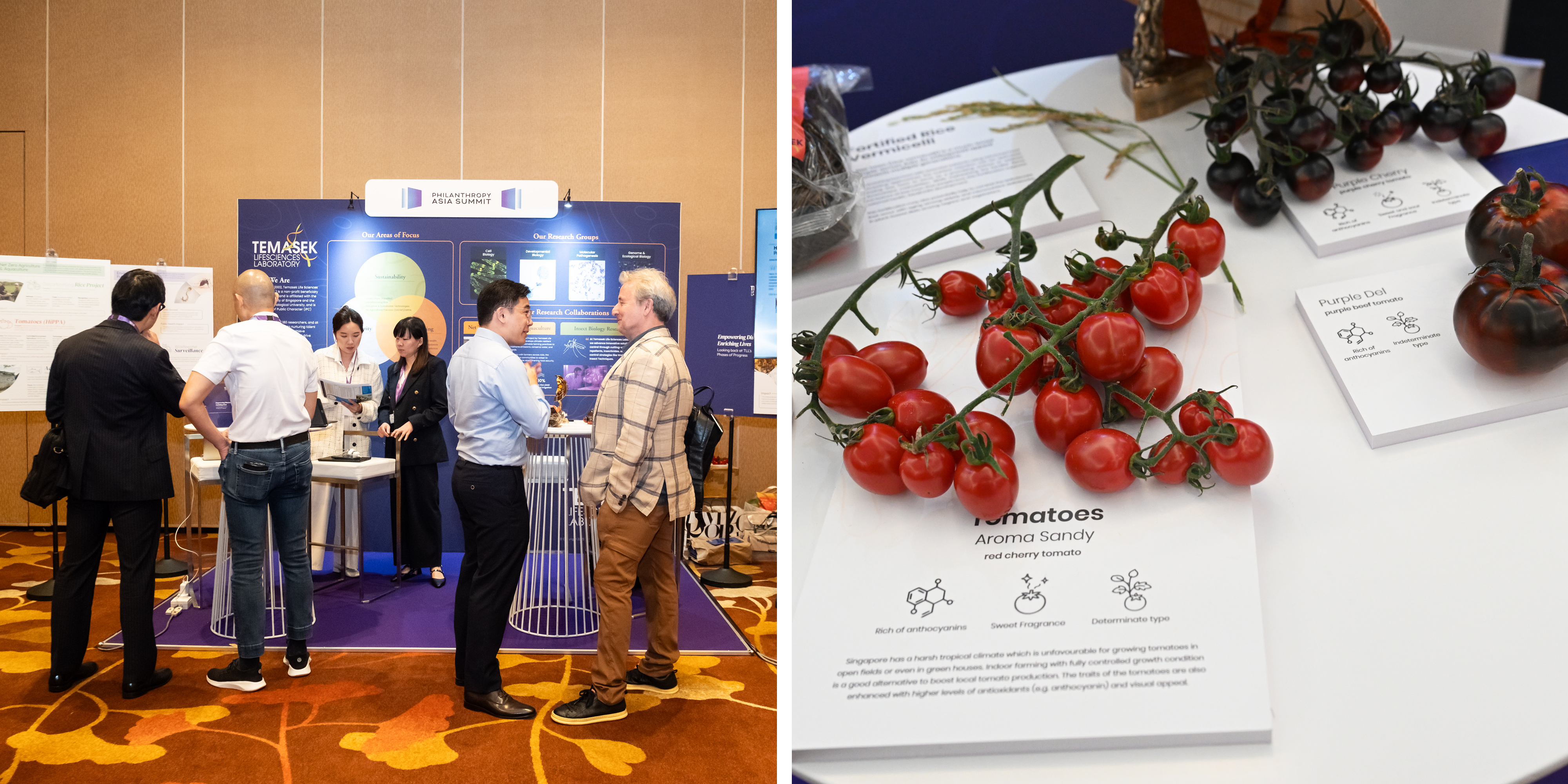
The TLL team sharing about their work in sustainable agriculture and life sciences at the Innovation Showcase. Initiatives featured at their booth included tomatoes grown from HiPPA.
TLL’s Fortified Rice Vermicelli project tackles nutritional deficiencies by transforming bee hoon into a healthier food option enriched with essential nutrients, such as iron, folic acid, and vitamin B12. This offers a practical, accessible way to improve everyday nutrition to support better health outcomes in vulnerable communities, and creates added value and income streams for rice farmers.
Leveraging the Impact Ecosystem for Climate and Nature
Platforms like PAS and GAEA Awards go beyond thought leadership — they also cultivate cross-sector communities for mutual learning and collaborative action.
At a PAS partner event anchored by Alliance Bioversity International - CIAT, Dr. Naweed Naqvi, Temasek Senior Investigator, TLL, contributed his insights as a panellist in the discussion about building climate-resilient agri-food systems in Asia.
The session explored how philanthropy and innovative finance can drive integrated solutions to strengthen agri-food systems, empower farmers, and protect the environment.

TLL's Dr. Naweed Naqvi (in black jacket), at the PAS partner event, "From Seed to Harvest: Building Climate-Resilience Agri-Food Systems in Asia".
Smallholder farmers are at the heart of TLL’s work, said Dr. Naweed, speaking on TLL’s work in rice production. The idea is to use science-driven impact to create localised, community-centric solutions that help these farmers grow better while minimising their climate impact. This focus has helped them build capacity and capabilities in the region, particularly in India, Laos, and Indonesia, as they scale impact in Asia.
“Capacity building, especially the involvement of philanthropies, would be extremely useful in amplifying this impact, to accelerate these sustainable practices — at least for rice production — in a very integrated and sort of interconnected way,” he added.
TLL also participated in the GAEA Awards programme during the week. This included joining a hands-on workshop on communicating complex ideas to multiple stakeholders, alongside the Amplifier 2024 cohort’s mentees.
All five awardees also presented their projects to philanthropies, funders, financiers, social enterprises, and ecosystem enablers, at a session entitled “Catalysing Philanthropic-Public-Private Partnerships for a Well-Being Economy: The power of storytelling – GAEA Awards”. This fostered an insightful dialogue on avenues for funder participation, funding gaps, evaluation criteria, and the importance of co-creating projects for greater impact.
Enriching Lives Through Science-Based Innovations
Established in 2002, TLL has remained on the frontier of scientific research in Singapore over the past two decades, furthering biological discovery and the development of solutions with big societal impact.
It is committed to nurturing and empowering talent to achieve groundbreaking science-based discoveries and drive impactful real-world applications to improve lives in Asia and beyond.
To explore research partnerships or opportunities with Temasek Life Sciences Laboratory, please contact Teng Li at [email protected].
For collaboration on the Decarbonising Rice Project, kindly reach out to Phuay-Yee at [email protected].
To learn more about TLL’s work, visit www.tll.org.sg and follow them on LinkedIn.
Find out more about the Temasek Trust ecosystem’s key milestones and initiatives at the Summit. Look out for the upcoming PAS 2025 Insights Report for key takeaways.
Stay updated — subscribe to our Impact Brief newsletter and follow us on LinkedIn, Instagram, Facebook, and YouTube.
.png?sfvrsn=ee6c8252_1)
